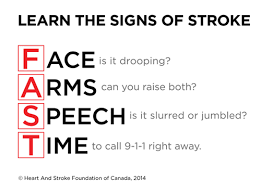Older adults are often the targets of scam artists. Whether it’s a disreputable contractor collecting payment in full before starting a repair and then disappearing, or a telemarketer promising a big lottery prize for a fee upfront, scammers are coming up with new ways to defraud seniors every day.
As a caregiver, it’s disheartening to think your loved one could be the victim of senior fraud, but according to AARP, it’s becoming big business. They say outside estimates of elder fraud vary widely, from $2.9 billion up to $36.5 billion, but they all agree that it’s underreported. Often, loved ones are embarrassed to admit they were tricked, or they are afraid their caregiver will tell family members about their financial loss.
As scammers become more sophisticated, scams are looking more and more legitimate, often with realistic looking websites and social media, making it even harder to tell what’s fraudulent and what’s not. Here are three popular scams to look out for, and tips to prevent your loved one from being a victim:
Catfishing
Older adults who have lost a partner are especially vulnerable to “catfishing” schemes. They may be looking for companionship online and meet someone (virtually) who they think is a potential love interest. These love scammers prey on the loneliness of seniors, promising undying love and the prospect of marriage. But the scammer will often claim they have a health problem and need money to pay for an operation before they can visit in person.
This is a huge red flag. If your senior loved one is drawn into an online relationship, strongly discourage them from sending money. Caregivers may need to monitor a loved one’s email, or obtain the authority to check their financial statements to see who they are sending money to. As a last resort, do some investigating on their behalf or consider legal protections. Catching this activity early can save a lot of heartache and money, but it’s a touchy subject and compassion can help ease the conversations.
Fraudulent Charities
Unfortunately, these types of financial frauds are popular among scammers. The phone numbers or emails of older adults are purchased from a list service, and they usually hire temporary staff to call or email seniors after a natural disaster or during a national awareness month for cancer or other disease, asking for donations.
These scammers are experts at getting websites and call centers set up quickly, with official-looking letterheads and emails. Then they disappear once they have collected enough money or they get reported. Explaining how these scams work to your loved one may help them spot a scam, or they can ask the caller for a return phone number for the “charity” and tell them they’ll call back. Caregivers can inform loved ones that legitimate charities never insist on immediate donations or payments. You can also check out these fraud tips from the Federal Trade Commission.
Phishing
Email scams run the gamut, and change frequently, but typical schemes include emails claiming the computer virus software is outdated and the user needs to click on a link to update it, which then allows hackers to collect personal information and possibly take over a loved one’s computer system and hold it for “ransom.” Other email scams also prey on elder’s fears and may claim a car warranty is expiring, a grandchild is in jail and needs bail money or a warning that payment is due or late on a credit card.
If your loved one still uses a computer and email to stay in contact with family and friends, experts in elder fraud suggest caregivers obtain the passwords and logins for their accounts in order to create privacy settings and safeguards on their computers.
Being a victim of fraud is devastating to elders and their loved ones. If you suspect your loved one has been targeted, the FBI suggests contacting their Internet Crime Complaint Center to report elder fraud, or caregivers can call AARP’s fraud helpline at 877-908-3360. Everyone is at risk of being the victim of a scam, but when caregivers are vigilant and establish precautions, senior loved ones can be better protected from clever fraudsters.
























